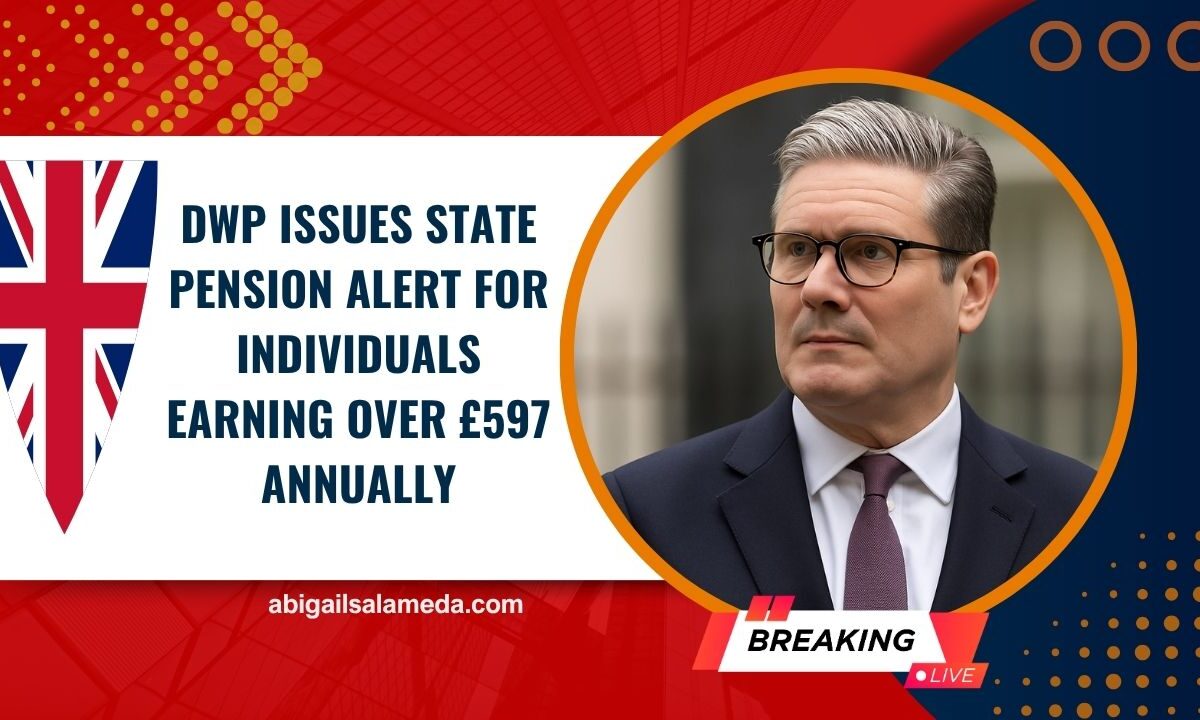UK state pensioners have recently been cautioned that exceeding annual earnings of £597 could result in tax obligations to HMRC.
This advisory comes in light of the Triple Lock policy, which caused a 4.1% increase in state pension payments starting April 2025.
Under this system, pensions are raised based on the highest of inflation, wage growth, or 2.5%, ensuring financial support keeps pace with economic trends.
What Is the New State Pension Rate in 2025?
Following the increase, the full new State Pension now stands at:
| Payment Type | Amount |
|---|---|
| Weekly Payment | £230.25 |
| Annual Total | £11,973 |
This annual amount leaves pensioners just £597 below the Personal Allowance threshold of £12,570. The Personal Allowance is the amount you can earn tax-free before income tax applies.
What Happens If You Earn More Than £12,570?
Pensioners earning above the personal allowance are subject to income tax:
- 20% tax on income between £12,571 and £50,270
- 40% tax on earnings above £50,270
That means any income—even just £1—above £12,570 will be taxed at 20%. Despite being a modest amount, this can catch many pensioners off guard.
Tax Groups Urge DWP & HMRC to Act
The Low Incomes Tax Reform Group (LITRG) has asked the DWP and HMRC to provide better guidance to retirees who may unintentionally surpass the tax threshold.
They stated:
“We believe DWP and HMRC must collaborate to proactively inform pensioners of their tax liabilities, especially due to rising pension incomes.”
They also recommended including tax guidance in the State Pension notification letters sent by the DWP each spring, just before pension increases take effect.
Martin Lewis Clarifies Tax Myths
Popular finance expert Martin Lewis, speaking on his Sounds podcast, addressed confusion surrounding pension increases and taxation. Responding to concerns that earning above the threshold makes pensioners worse off, he emphasized the marginal nature of tax.
“If you earn £1,000 over the threshold, only that amount is taxed—so yes, you get taxed 20%, but you still take home £800 extra. It’s better than earning nothing.”
He further highlighted that state pensions have always been taxable when combined with other income, and that increasing your pension does not negate financial gain; rather, it marginally reduces the net amount owing to taxation.
Important Note for Low-Income Pensioners
Lewis added a vital point for pensioners on low incomes who may qualify for Pension Credit:
- Pension Credit can top up income to the full State Pension level for those without additional earnings.
- Buying extra qualifying years for your pension may be redundant if Pension Credit would already cover the shortfall.
So, it’s crucial for pensioners to assess whether it’s worth paying to boost their National Insurance contributions if Pension Credit would already provide that amount.
With the 2025 increase in State Pension rates, many pensioners are now approaching the taxable income threshold, even without additional earnings.
Being just £597 away from the £12,570 Personal Allowance means even a minor increase—such as savings interest or part-time income—could push retirees into the taxable bracket.
It is critical for pensioners to understand how tax applies to their income, how HMRC collects it, and whether acquiring additional pension years adds value in terms of Pension Credit eligibility.
Staying educated and obtaining assistance might help you avoid unexpected tax expenditures while increasing your income in retirement.
FAQs
How much can I earn before my State Pension is taxed in 2025?
You can earn up to £12,570 per year without paying tax. The full State Pension is £11,973 annually, leaving only a £597 buffer.
Is it worth topping up my pension if I qualify for Pension Credit?
Possibly not. If you qualify for Pension Credit, it could already bring your income up to the State Pension level, making paid top-ups unnecessary.
How is tax collected from my State Pension?
If your income exceeds the tax-free threshold, HMRC may collect tax through PAYE on other income or request payment via Self Assessment.




